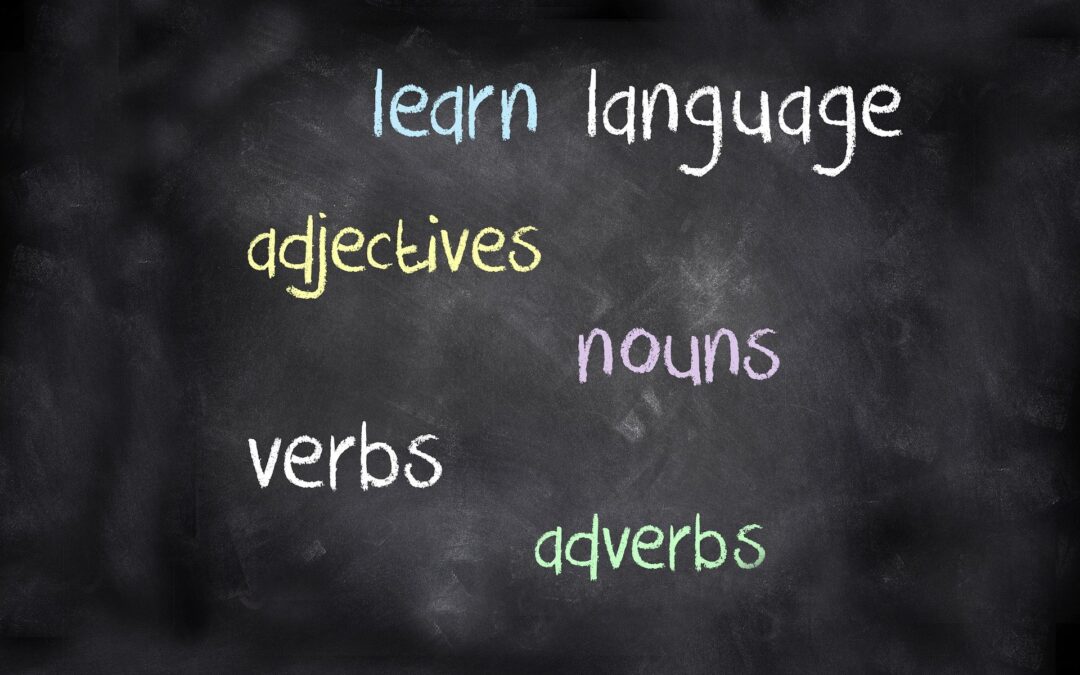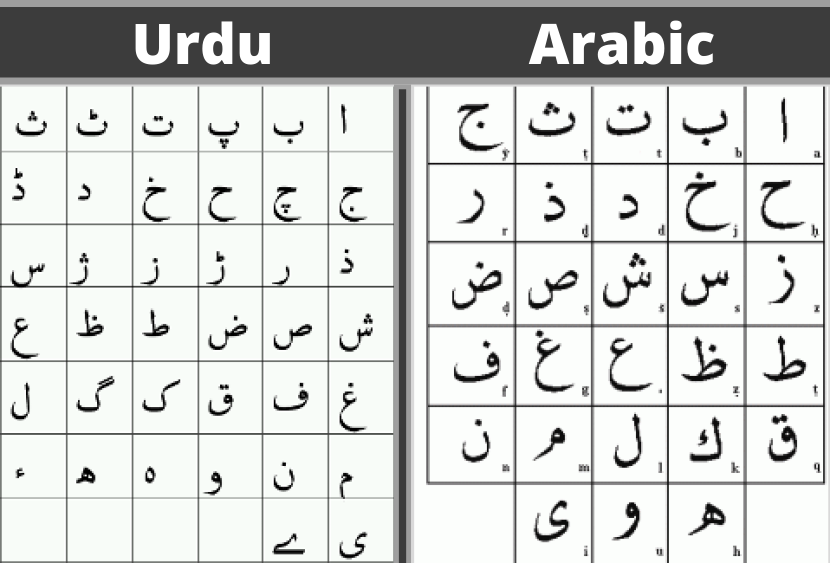
by nynasma | Jun 17, 2021 | BLOG
If you just remember one piece of grammar advice from Nasma Of NY, make it this:
To learn a foreign language, you don’t need to study grammar.
It’s a reality that defies a slew of failed classroom approaches about grammar for foreign language training. Also, it promotes widespread misunderstandings among students about how we learn languages.
There are folks who are adamant that grammar study is required, which as a matter of fact, learning a language without grammar study is absurd.
Continue reading and give us a chance to speak.

Focus on grammar consistently results in a failure to produce proficient speakers
The great emphasis on learning grammar as a basis for speaking is one of the key reasons why so many education systems are failing to produce students who can correctly speak a foreign language.
Your accent, fluency, and confidence in speaking the language outperform 99 per cent of students who have studied the language for at least twelve years. This is not an exaggeration. It demonstrates both the potential of what someone can achieve with the internet and a little effort, as well as how dysfunctional our educational system is.
When pupils have been learning a language for years but still can’t communicate in it, it’s safe to assume that something is seriously wrong with their approach and that of their professors (motivation must also be taken into consideration too of course).
Fluent speakers utilise grammar rules to convey what they already know
You didn’t learn your own language’s grammar to become a fluent speaker.
You were a fluent speaker of your native language well before the age of five. Before you even knew what a verb was, you knew how to use it in various tenses. Without ever receiving explicit teaching or mastering grammar principles, toddlers begin to use sophisticated sentences on their own.
The primary reason we learn our own language’s grammar at school is to improve our literacy skills, not to become better speakers.
Beginning with single-word utterances/naming and progressively progressing to brief sentences, children learn grammar by listening to and repeating the sound patterns they hear others speak.
The New Approach
What’s to stop adults from doing the same or something close if children can acquire a language and its grammar in this way?
Languages are learned in chunks – words, collocations, and phrases that we hear over and over again. This is why, much to their parents’ surprise, children transition from babbling to speech practically overnight.
For instance, the phrase “I desire” is a chunk. You’ve probably used those two words together in that sequence many times in your life.
It’s a single statement that you heard and memorised in its entirety. You can make an endless number of variations by adding another piece to it (a name or an action).
We’d even go so far as to claim that you learnt every verb tense you know as a prepackaged piece. You didn’t learn the verb write and then learn how to conjugate it. For example, you learnt that I write, she writes, they write, and so on as whole objects. You developed an ear for what sounds good and what doesn’t over time.
When you hear anything that doesn’t sound quite right, you quickly recognise the mistake. This is not because you’re knowledgeable of grammar, but because you’re so used to the proper, preset forms that anything else doesn’t sound right. Imagine hearing music that you are quite familiar with. Even if a single note is performed wrong, you will notice it even if you’re not musically inclined.
The finest investments are books and genuine discussion
We frequently discuss the value of enriching books and reading material.
You’ll find books and other materials with a lot of realistic, real-life dialogues to be considerably more beneficial than anything with a strong grammatical focus.
For Arabic, Nasma of NY’s Levantine Arabic book series (for Adults and Children) is quite helpful. It’s geared at both basic and advanced level students. It’s an ideal learning tool.
A learner should focus on one sentence for a whole day, saying it, writing it, making new sentences by adding new words, and Googling to discover articles where that sentence has been used elsewhere.
By concentrating on a single sentence like this, you’ll unintentionally learn a new area of grammar and vocabulary while having fun.
We dare you to put grammar aside until you’ve reached the point where you need to concentrate on your reading abilities.
Concentrate on recognising and memorising complete chunks that you can use in discussions right away.
Make sure to check out Nasma Of NY’s Adults Group Conversational Classes to boost your conversational skills. The highlight of these classes is that we do not focus on learning the practicalities of grammar but more on how you converse with others in Arabic.

by nynasma | Jun 9, 2021 | BLOG
The American Academy of Arts and Sciences has issued a report urging the United States to devote more resources to language education. The following data represents the failure of American Schools in teaching Foreign Language. According to this research, American kids have far less access to foreign language teaching than kids in other economically developed nations. They are far less likely to be bilingual or multilingual.

How did America lose its Native Language?
There are several reasons for the poor status of bilingual and multilingual proficiency in the United States. There are far too many of the children with the greatest potential to become competent bilinguals — those born to immigrants – lose their parents’ native tongue. Immigrants are said to have entirely lost proficiency in their ancestral languages by the third generation.
The availability of ongoing support (political, social, and educational) for the preservation of minority languages is limited. Bilingualism can be hampered by a widespread belief that learning English is more essential than maintaining one’s native tongue.
Low Expectations on Learning Foreign Language
Another issue that may be contributing to the lack of multilingual competency in the United States is low expectations. Issues like there are too many Americans believe that foreign language training is a sham. They believe that a huge number of students will never become fluent in another language. They think that investing time in foreign language learning is a waste of time.
How do we account for the fact that 100% of students in Germany, Scandinavia, the Netherlands, Switzerland, Singapore, and many other countries achieve excellent levels of proficiency in English including other languages? Is there a strange stumbling block to learning a foreign language among American students?
Taking advantage of new opportunities
Despite most curricula’s existing limitations, the classroom experience can provide a solid basis for actually learning a foreign language.
This is especially true when a genuine chance for communication presents itself. On vacations overseas, some pupils are fortunate enough to have the opportunity. Others might look for it by helping in refugee shelters or programmes for immigrant youngsters, or by looking for native speakers on social media.
The main mistake American schools are making is they tend to focus more on teaching grammar of the language to the students. They should rather impart conversational and speaking skills of the language to the students so they develop a habit of speaking the language more confidently and correctly.
That’s why through Nasma Of NY, one can improve their communication and speaking skills through our Adults Group Conversation Classes.
With so much potential to improve foreign language training, let us not abandon it altogether. Instead, let us figure out how to supplement it with experiences that allow students to make the most of it!
Nasma Of NY, one can become confident and gain exceptional speaking and conversational skills. We offer a series of courses and classes catering to every age group. Visit Nasma Of NY to know more.

by nynasma | May 31, 2021 | BLOG
Learning a new language is a tricky affair. You cannot master it overnight – it takes a huge amount of effort and dedication to learn it the right way. There are plenty of learners of Arabic or any other language who struggle with different issues. Learning how to speak Arabic can be a pretty smooth ride if the learning is done in the right way.
People are able to understand a new language but they struggle to speak or converse in it. They have the knowledge of that language and have learnt all the vocabulary in their head but they can’t get themselves to speak. This makes them question whether they’re really fluent in that language or not.
Here are some tips and suggestions to make your language learning a smoother process:
Avoid Passive Learning
Passive learning is when we learn a language through reading or learning and grasping the vocabulary. The moment we listen to a new word, we go to see what the meaning of the word is and try to memorize it. It is called passive is because we’re not really putting the word to use in our conversations straight away.
What you should do instead is to make sure you’re producing the word or expression straight away after learning it. These are the steps you should follow:
- Learn a new word
- Search the meaning
- See examples of how that word is used in a sentence
- Write it down in your vocabulary book
- Say it out loud
- Make three sentences on your own using that word
- Revise the vocabulary words
Nasma Of NY’s Levantine Arabic textbooks for Adults and Children is designed in ways where they can keep reminding you of the different words you’ve learnt until you’re familiar with them. There are different books for different levels, like Level 1, Level 2, and Level 3.
Practice, practice, practice speaking Arabic!
The key to learning anything – be it a language or any instrument – you just have to keep practising. After you’ve successfully completed the steps above, you need to actually start practising speaking Arabic. This will help you acquire the language the way babies learn – they don’t understand grammar but they speak whatever and however they learnt from their surroundings and improve as they go ahead.
Language schools focus a lot on grammar but not conversation. That’s why at Nasma Of NY’s Adult Group Conversation Classes, we focus on acquiring conversational skills of Levantine Arabic more than the grammar.
What can I do to practice speaking Arabic?
Make Presentations in Arabic
Make presentations about different topics and deliver them in Arabic. It should be a properly structured video – right from the introduction to the conclusion – everything should be spoken in Arabic. You can record yourself while speaking to spot your errors.
Paraphrase in Arabic
Paraphrase whenever you’re consuming content. At every gap of five minutes, pause and paraphrase what you heard while watching a movie or reading a book. You can retell the story in your own words in Arabic.
Remember, understanding but not being able to speak Arabic is a very common issue. Do not get demotivated and stop the learning process. Follow these tips and get enrolled with Nasma Of NY’s Adult Group Conversation Classes to learn to speak Arabic the right way!

by nynasma | May 26, 2021 | BLOG
In today’s increasingly interconnected and interdependent world, to learn a language is a critical skill that allows you to engage with the world more directly and meaningfully. Whether in your own neighbourhood or thousands of miles away—it better prepares you to compete and succeed in the global economy.
To learn a language that is new can significantly improve your job prospects, college education and experiences, travel, and personal enjoyment of the arts and culture. Here are ten compelling reasons to learn a new language.
-
Get A New Point Of View
We naturally make comparisons to what we are most familiar with as we learn a new language and culture. Learning about another culture reveals aspects of our own culture that we may not have considered before. You might discover a new appreciation for what you have, or you might decide to make a change!
-
Improve Your Decision-making Skills
According to studies, decisions made in your second language are more rational than those made in your first. Contrary to popular belief, when we deliberate in a second or third language, we actually distance ourselves from the emotional responses and biases that come with our first language. The result is decisions made in a systematic and clear-headed manner based solely on the facts.
-
Improve Your Self-confidence
Any language learner can attest to making numerous errors while learning a new language, often in front of an audience. It’s a necessary part of the learning process! Learning a language involves taking risks and stepping outside of one’s comfort zone. On the plus side, conversing with someone in their native language will give you a tremendous sense of accomplishment.
-
Turn Into A Polyglot
Learning a second language not only improves communication skills and expands vocabulary in your first language, but it also makes learning additional languages much easier, especially for children. That’s because when you learn a new language, your brain develops new neural networks that are primed and ready for learning a third.
-
Access The Source
Knowing at least one additional language allows us to access information that would otherwise be unavailable. Individuals who are fluent in other languages, for example, can use the Internet as true global citizens, consuming and evaluating foreign media and entertainment.
-
Explore The World
While monolingual travellers can visit the same places, multilingual travellers are better able to navigate outside the tourist bubble. They can connect and interact with the place and its people in ways that are often unavailable to those without the language. Learning a second language also expands your options for studying or working in another country.
-
Strengthen Your Relationship With Other Cultures
The most direct link to other cultures is language. Being able to communicate in another language exposes us to and fosters an appreciation for the people associated with that language’s traditions, arts, and history. Greater understanding fosters greater tolerance, empathy, and acceptance of others. Studies indicate that children who have studied another language are more open to and have more positive attitudes toward the culture associated with that language.
-
Feed Your Brain
The cognitive benefits of learning languages are undeniable. People who speak more than one language have improved memory, problem-solving and critical-thinking skills, enhanced concentration, ability to multitask, and better listening skills. Being bilingual or multilingual also helps to stave off mental ageing and cognitive decline.
-
Promote Your Profession
Language abilities can give you a significant competitive advantage over your monolingual peers. They are among the top eight skills needed in all occupations, regardless of sector or skill level, and the demand for bilingual professionals is growing at an exponential rate. As a bonus, language skills are frequently linked to hiring bonuses and higher salaries.
-
Connect
Our ability to connect with others is one of the most rewarding aspects of the human experience, and being able to communicate with someone in their own language is an essential form of connection. In both their personal and professional lives, bilinguals have the unique opportunity to communicate with a wider range of people.
It is more important to practice spoken language rather than written while learning a new language. If you’re someone who has always wanted to learn Levantine Arabic but couldn’t gain confidence in speaking the language, we recommend you to join Nasma Of NY’s Adult Group Conversation Classes. They will not only help you in boosting confidence in speaking Levantine Arabic, but also help you gain conversational skills.
If you’re someone looking out for better job prospects in the Middle East, check out Nasma Of NY’s Corporate Arabic languages classes!

by nynasma | May 19, 2021 | BLOG
Last week, we wrote a blog about Urdu words that have an Arabic origin. Interestingly, Urdu borrows a large part of its vocab from Arabic – 30% of Urdu words are derived from it. Today, let’s have a look at the differences between Urdu and Arabic language.
Urdu is the world’s 21st most spoken first language, with roughly 66 million native speakers and including those who speak it as a second language. There are thousands of words in this language having Arabic origin. Let’s have a look at why these two languages are so similar and their key differences.
Why Is Urdu Similar To Arabic?
Although the languages belong to two different families, Urdu language has several Arabic-derived vocabularies that were introduced into it via Persian, resulting in a change in sound.
Modern Requirement Urdu is a Hindustani language that has been Persianized and standardised. It is Pakistan’s official national language and lingua franca.
There are many Arabic terms in this language, both adopted and derived. However, those are all on a vocabulary level. Many of the borrowed words are even employed in different contexts and have different meanings than they did in Arabic. When somebody comes from Urdu language and tries to learn Arabic, the popular words with inconsistent meanings can be frustrating.
Difference In Pronunciation
A significant distinction between the two languages is pronunciation. Both languages have distinctive vowel and consonant sounds, which can vary the way a word is uttered as well as the meanings.
The letters in Arabic are pronounced differently than they are in Urdu. Urdu ones, on the other hand, have a tendency to deviate more from Persian ones. For example, a native Urdu speaker may pronounce qaf as something closer to an aspirated k, or kh, rather than the the former qaf.
This language’s speakers seem to prefer Persian pronunciation over Arabic pronunciation. For example, Persian and Urdu pronunciations are identical, causing confusion between the other two “s”s as well. Although Arabic has a separate original pronunciation that is approximated to /s/.
Difference In Letters
Urdu is a variant of the Persian alphabet, which is a descendant of the Arabic alphabet. The Urdu alphabet has up to 39 or 40 different letters. Here, no separate letter cases and is written in the calligraphic Nastaliq script. Arabic is written in the Naskh style.
Letters in the Arabic script and many others derived from it are said to have two or three general forms apiece, based on their position in the word. However, even in simple non-decorative writings, the Nastaliq manner in which Urdu is written uses more than three general forms for several letters.

Conclusion
Finally, though the two languages have certain similarities, it is vital to notice that the syntax is distinct. Because of the similarities, it is considerably easier for Arabic speakers to learn Urdu.
If you’re someone who has always been interested in Learning Arabic, check out Nasma of NY’s Levantine Masterclass. Nasma Of NY provides a free 14-day trial, weekly zoom meetings, 24×7 support and a lot more.
Although there are lots of programs and apps that will help you learn to speak isolated snippets of Arabic, those apps are insufficient if you ever want to have an actual conversation in Arabic. Nasma of NY’s live-online conversation classes is great for anyone who has studied basic grammar rules and is ready to build confidence in conversation. These classes are designed to focus and build confidence in speaking Levantine Arabic.
Check out Nasma Of NY’s textbooks for children and adults for getting an extra edge over your Levantine Arabic skills.

by nynasma | May 13, 2021 | BLOG
Arabic is one of the world’s most widely spoken languages. Persian, Turkish, Malay, Hindi, Urdu, Indonesian, Tagalog, Somali, Swahili, and even Spanish have all been inspired by it. Urdu is one of the languages which is thought to have originated in Arabic. The key distinction between Urdu and Arabic is that Urdu is from the Indo-European language family, while Arabic is from the Afro-Asian language family. Let’s look at fifty popular Urdu words that have Arabic origin:
Aakhir: أخر
Aakhir is an Urdu word derived from Arabic which means “Last/final”
Aadaab: أدب
Aadaab is an Urdu word derived from Arabic which means “manners (plural of Adab)”
Awwaal: أول
Awwal is an Urdu word derived from Arabic which means “First/Excellent/Best”
Baab: باب
Baab is an Urdu word derived from Arabic which means “Door/Gate/Chapter/Topic/Subject”
Bukhaar: بخار
Bukhaar is an Urdu word derived from Arabic which means “Steam/Temperature/Fever/Rage”
Badr: بدر
Badr is an Urdu word derived from Arabic which means “Full moon”
Badal: بدل
Badal is an Urdu word derived from Arabic which means “exchange/change/substitution”
Bait: بيت
Bait is an Urdu word derived from Arabic which means “House/Abode”
Daar: دار
Darr is an Urdu word derived from Arabic which means “House/Country”
Hukm: حكم
Hukm is an Urdu word derived from Arabic which means “Order/Decree/Statute/Law”
Hikmat: حكمات
Hikmat is an Urdu word derived from Arabic which means “Wisdom/Knowledge/Cleverness/Device”
Hakeem: حكيم
Hakeem is an Urdu word derived from Arabic which means “Wise man/Doctor/Philosopher”
Hayaa: حياء
Hayaa is an Urdu word derived from Arabic which means “Modesty/Shame”
Hayaat: حياة
Hayaat is an Urdu word derived from Arabic which means “Life/Existence”
Insaan: انسان
Insaan is an Urdu word derived from Arabic which means “Man/Human being/Mankind”
Insaniyat: انسانيات
is an Urdu word derived from Arabic which means “Humanity/Civility”
Irfaan: عرفان
Irfaan is an Urdu word derived from Arabic which means “Knowledge/Science/Wisdom”
Jaazib: جذاب
Jaazib is an Urdu word derived from Arabic which means “Alluring/Attractive”
Jaahil: جاهل
Jaahil is an Urdu word derived from Arabic which means “Ignorant/Illiterate/Barbarous”
Junoon: جنون
Junoon is an Urdu word derived from Arabic which means “Madness/Insanity”
Jawaab: جواب
Jawaab is an Urdu word derived from Arabic which means “Answer/Equal/Parallel/Match”
Jawaahir: جواهر
Jawaahir is an Urdu word derived from Arabic which means “Jewels/Gems (plural of Jauhar)”
Khaas: خاص
Khaas is an Urdu word derived from Arabic which means “Special/Particular/Private/Noble/Unmixed”
Khabar: خبر
Khabar is an Urdu word derived from Arabic which means “News/Information/Report/Rumor/Notice”
Khair: خير
Khair is an Urdu word derived from Arabic which means “good/best”
Kitab: كتاب
Kitab is an Urdu word derived from Arabic which means “Book”
Kalam: قلم
Kalam is an Urdu word derived from Arabic which means “Pen”
Muyassar: ميسر
Muyassar is an Urdu word derived from Arabic which means “Facilitated/Easy/Possible/Feasible”
Malaal: ملل
Malaal is an Urdu word derived from Arabic which means “Sadness/Grief/Langor/Fatigue”
Madraseh: مدرسة
Madraseh is an Urdu word derived from Arabic which means “School”
Mufeed: مفيد
Mufeed is an Urdu word derived from Arabic which means “Profitable/Beneficial/Useful”
Maghroor: مغرور
Maghroor is an Urdu word derived from Arabic which means “Proud/Arrogant”
Mazboot: مظبوط
Mazboot is an Urdu word derived from Arabic which means “Strong/Firm/Resolute/Valid”
Matin: متين
Matin is an Urdu word derived from Arabic which means “Strong/Solid/Vigorous/Obstinate”
Noor: نور
Noor is an Urdu word derived from Arabic which means “Light”
Niyyat: نيات
Niyyat is an Urdu word derived from Arabic which means “Intention/Purpose/Will/Aim”
SaaHir: ساحر
SaaHir is an Urdu word derived from Arabic which means “Magician”
Safar: سفر
Safar is an Urdu word derived from Arabic which means “Journey”
Sabr: صبر
Sabr is an Urdu word derived from Arabic which means “Patience/Endurance/Submission/Suffering”
Sawaab: ثواب
Sawaab is an Urdu word derived from Arabic which means “Reward/Recompense”
Tamaam: تمام
Tamaam is an Urdu word derived from Arabic which means “Entire/Complete/Perfect/End”
Tameez: تمييز
Tameez is an Urdu word derived from Arabic which means “Discernment/Judgement/Observance of etiquette”
Wafaa: وفاء
Wafaa is an Urdu word derived from Arabic which means “Fulfilling a promise/Fulfilment/Fidelity”
Waseem: وسيم
Waseem is an Urdu word derived from Arabic which means “Handsome/Fine countenance”
Watan: وطن
Watan is an Urdu word derived from Arabic which means “Native country”
Waqt: وقت
Waqt is an Urdu word derived from Arabic which means “Time”
Wadood: ودود
Wadood is an Urdu word derived from Arabic which means “Loving/Friendly”
Yaum: يوم
Yaum is an Urdu word derived from Arabic which means “A day”
Yateem: يتيم
Yateem is an Urdu word derived from Arabic which means “Orphan”
Zauq: ذوق
Zauq is an Urdu word derived from Arabic which means “Taste”
These are just fifty words out of thousands of words in the Urdu language that have been derived from the Arabic language. To learn the Levantine dialect of the Arabic language, visit Nasma Of NY and get 14 days FREE trial!









